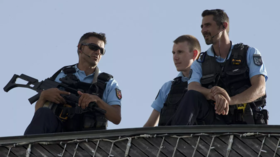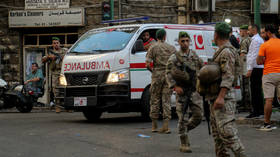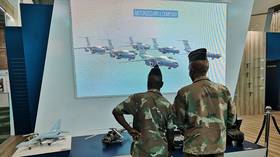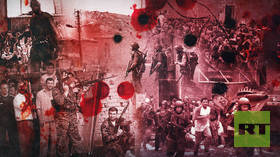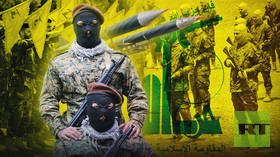Russia strikes Ukrainian troops northwest of Dnieper River – MOD (VIDEO)
The Russian Defense Ministry has showcased its use of glide bombs against Ukrainian positions on the right bank of the Dnieper River.
A video of the airstrikes, which was apparently filmed at night, showed a series of explosions in three different villages.
The settlements are located relatively close to each other in the Kiev-controlled part of Kherson Region, which Moscow has considered part of Russia since a 2022 referendum. Their distance to the major waterway, which serves as a natural barrier separating the opposing forces, is between 12km and 20km.
The strikes took place roughly 90km to the east of Kherson, the region’s capital, which Russian forces pulled out of in November 2022. Moscow said the retreat was unfortunate, but necessary so that troops could move to better-defended positions. Kiev claimed it as a major military victory.
The Russian attacks involved air bombs fitted with special glide kits, which turn the regular gravity weapons into longer-range precise munitions. Ukrainian officials have called such bombs one of the biggest threats to the country’s frontline troops, due to their power and abundance in the Russian arsenal.
The Russian Defense Ministry said the strikes targeted locations where Ukrainian troops were being stationed before being sent to the frontline.



